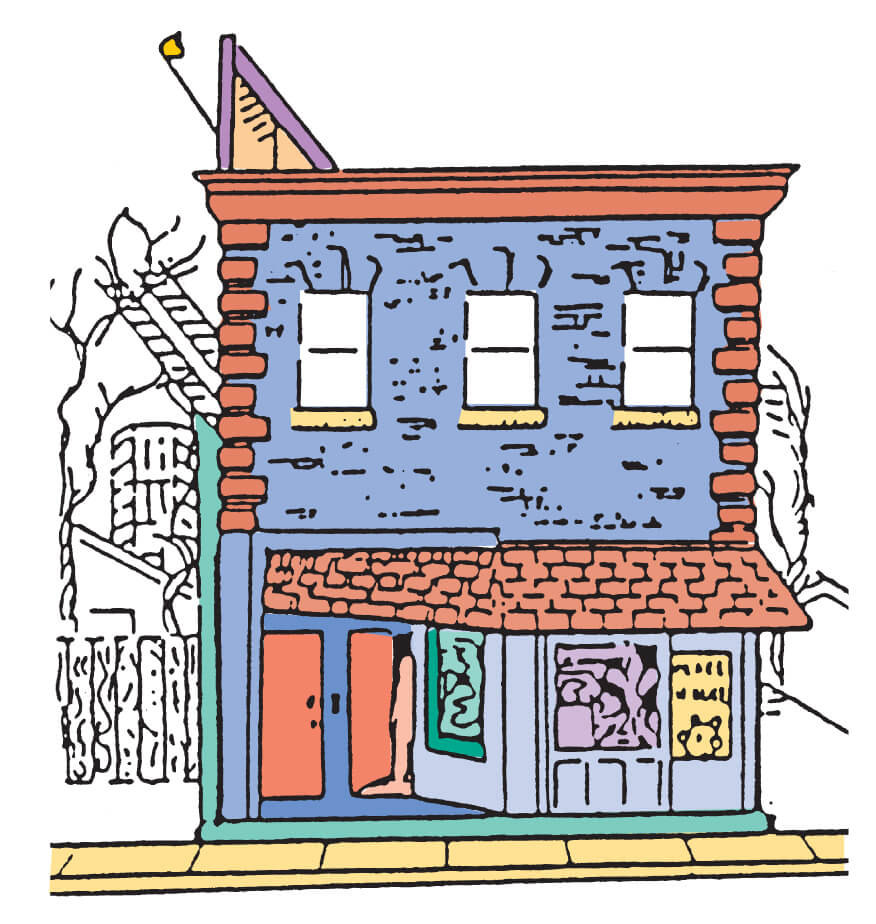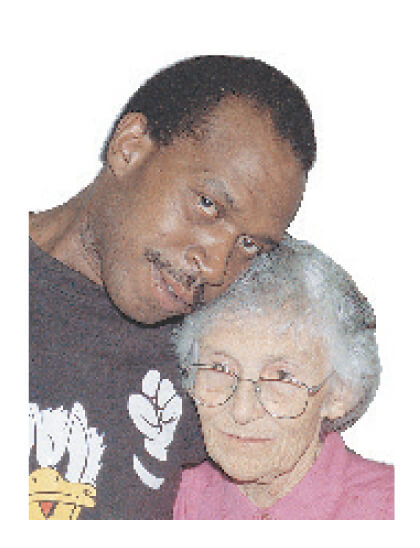by Rose Tillemans, CSJ

A strong-looking, stocky man with sad, intelligent eyes appeared in the Peace House door the morning of December 24. I’d never met him before. He wore plain, neat clothes like many of the homeless men who come to our street oasis every day. It was nearly meditation time, so I invited him to move into our circle. We went around with names as usual. When our visitor’s turn came, he said in a soft, rich voice, “I am Issa, and I was born in Bethlehem.” A quiet awe settled over the room. We had never been visited by anyone from Bethlehem before and on Christmas Eve Day!
That morning our theme was: How might Jesus appear if he came in the year 2000? Next to me sat an Ojibwe woman trying to quiet her baby grandson. The child was usually so bright and happy, but that day he wailed a lot—seemed fussy and unsettled. Jiggling the baby, the grandmother spoke. “I think Jesus would look like my father. He would have a strong voice for our people and restore our dignity.”
Others had seen pictures only of a tall, fair-skinned thin man with pink cheeks and long, wavy hair. “In Sunday school the baby Jesus was lying in a cold stable with a little blanket over him and his arms reaching out. He had golden curls and a circle of light around his head. Not a peep out him. He just lay in that straw so perfect. Black folks like me just couldn’t figure it out!”
Issa from Bethlehem listened with interest to the discussion. “I’m quite dark-skinned, but Jesus might have been even darker than I am,” he added. “But his skin color, how he came to be, where he was born, are not the important things. It was his message, his example, what he said and did. He was all of us. We are all one.” Issa swept out his arms to include all in the room. We pondered his words.
After meditation and lunch Issa offered to do the dishes with two suburban women guests. I heard them laughing and chatting with each other in the kitchen. One woman slipped a ten-dollar bill to Issa when the work was done. He nodded to them graciously, put the bill in his pocket, slipped into his jacket, and quietly headed out into the snow.
Who was this man who came to us on Christmas Eve? Will he ever return?
After supper in my apartment that Christmas Eve, I decided to go to St. Stephen’s Shelter to be with some of my Peace House friends who would be staying overnight there. I waited in front of my building for the bus. No stars in the sky. Even on Franklin Avenue, hardly a car in the street. The snow piled on the elm branches near me spoke “hush, hush.” My bus inched slowly toward my stop. I boarded carefully, dropped in my coins and settled in behind the driver. When I looked around I saw only three other passengers.
“Miz Rose, Miz Rose, is that you?” An attractive young woman sitting toward the back got up and moved toward me. “I’m Sasha, remember? Peace House paid my rent about five years ago. I’ve been doing so good!”
I told her I was glad about that. “But you’re drinking Sasha. I thought you had…”
She interrupted, “A person has to have a little fun on Christmas Eve, Miz Rose. Where are you going?”
I told her.
When it was time for me to get off, she jumped up and followed me down the steps. “I’ll walk you to the shelter so you won’t slip,” she assured me. “It’s dark out.” She took my arm and with a reverent gentleness—a gracious tenderness, accompanied me to St. Stephen’s.
At the door I asked Sasha, “Where are you headed tonight?”
She responded cheerfully, “Oh, I’m going to meet a friend at a motel.”
I knew what she was about and felt sad. This was her way of supporting her family—the same as five years ago, I mused. Sasha disappeared into the darkness of this Christmas Eve. I recalled Jesus’ words, “And the prostitutes will go first into the kingdom of heaven,” and stepped inside.
The men in the shelter were restless, edgy, moving from their bunks to the snack table—then outside for a last smoke before the door was locked. I visited with several. A boombox blared the Rudolph song. A young man handed me his new poem.
Silent night, holy night.
Nothing calm. Nothing bright.
In this shelter there is no child.
Everybody is nearly wild.
I read the poem and nodded. What does one say to a homeless man on Christmas Eve?
After an hour I headed to the door to catch my bus going east. Billy, a small dear man who comes to Peace House, was standing outside on the top step. He told me he hadn’t pulled the right number that would get him a bed inside.
“Where are you going?” he asked me with a concerned expression.
I told him. Billy tossed his cigarette into the snow and stepped on it. He was a little high. We at Peace House knew he was a drug dealer, but ever so kind to everyone.
“I’m going to walk you to the bus. It’s too dark and slippery for you to be out alone.”
He grabbed my arm firmly, and we hurried down the walk, reaching the stop just as the bus pulled up. I stepped in and turned back to thank Billy.
“I hope you’ll find a bed somewhere.” I called to him.
“Don’t you worry, Rose,” he answered. “I’m like Jesus. I got nowhere to lay my head.”
The bus door swung shut, and we jerked ahead. I sat down and removed my steamed-up glasses. Some frozen tears were stuck to the lenses.

Sister Rose Tillemans founded Peace House in an old storefront just south of downtown Minneapolis. Rose lived in the neighborhood and knew the people. She wanted Peace House to be a welcoming community in the heart of the inner city.
Sister Rose is gone now, but volunteers keep Peace House open. They provide a safe and peaceful atmosphere built on acceptance, a sense of belonging, friendship, dignity, and serving one another. At 11:30 each day, the doors to Peace House close so the people who have come have time for prayer and sharing. After this the doors open again, and the volunteers serve lunch to all comers.
